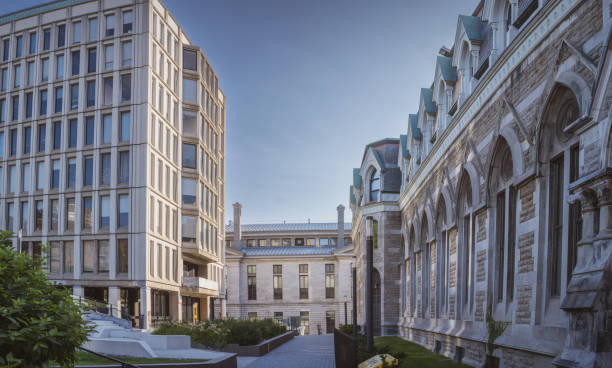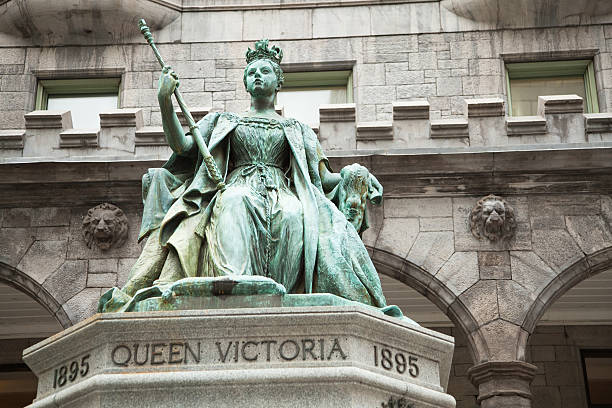Choosing the right university is a critical decision for any prospective student. Among the many factors to consider, acceptance rate is often a significant point of interest. McGill University, located in Montreal, Canada, is renowned for its academic excellence, diverse student body, and vibrant campus life.
In this article, we will delve into the acceptance rate at McGill University, explore the factors that influence it, and provide insights for aspiring students.
Understanding McGill University
Acceptance Rate Overview
As of my knowledge cutoff date in September 2021, McGill University maintained a competitive acceptance rate. It's important to note that acceptance rates can vary significantly from year to year and between different faculties and programs within the university. Generally, McGill's acceptance rate hovers around 46-48%. This means that, on average, roughly 46-48% of applicants receive an offer of admission. It's essential to recognize that McGill is a highly competitive institution, and meeting this acceptance rate depends on several factors.
For a non-refundable fee of $129.03 (Fall 2023 and Winter 2024) or $132.90 (Summer 2024), you can submit up to two applications in the same term to two different programs.
Factors Influencing Acceptance Rates
1. **Academic Excellence:** McGill University has a strong reputation for academic rigor. Admissions officers carefully assess an applicant's academic achievements, including high school grades, standardized test scores, and the strength of their coursework. Competitive applicants typically have a strong academic track record.
2. **Program Choice:** The acceptance rate can vary by program or faculty. Some programs are more competitive than others, and their acceptance rates may be lower. Popular programs such as medicine, engineering, and business often have more applicants, making admission more competitive.
3. **Extracurricular Activities:** McGill values well-rounded individuals who contribute to the university community. Participation in extracurricular activities, volunteer work, and leadership roles can positively impact an applicant's chances of admission.
4. **Letters of Recommendation:** Strong letters of recommendation from teachers, mentors, or employers can make a difference. These letters provide insight into an applicant's character, work ethic, and potential to thrive at McGill.
5. **Personal Statement or Essay:** Applicants are typically required to submit a personal statement or essay. This is an opportunity to showcase one's personality, goals, and motivation for attending McGill. A well-written essay can set an applicant apart.
6. **Diversity and Inclusivity:** McGill University prides itself on its diverse and inclusive community. Admissions officers consider factors such as geographic diversity, socio-economic background, and underrepresented groups when evaluating applicants.
7. **English or French Proficiency:** Depending on the language of instruction for the chosen program, applicants may need to demonstrate proficiency in either English or French through standardized tests like the TOEFL or IELTS.
Tips for Aspiring McGill Students
1. **Prepare Early:** Start preparing for your application well in advance. Ensure that your academic records, standardized test scores, and supporting documents are in order.
2. **Select Programs Wisely:** Research the programs you are interested in and understand their admission requirements. Be realistic about your chances based on your qualifications.
3. **Showcase Your Achievements:** Highlight your achievements, both academic and extracurricular, in your application.
4. **Write a Compelling Personal Statement:** Spend time crafting a thoughtful and unique personal statement that reflects your passion for your chosen field of study.
5. **Seek Guidance:** Reach out to admissions counselors or attend information sessions to gain insights into the application process.
McGill's programs
McGill University offers a diverse array of undergraduate, graduate, and professional programs across various faculties and schools. Here's an overview of the programs available at McGill:
1. **Faculty of Arts:** The Faculty of Arts encompasses a wide range of disciplines, including humanities, social sciences, and creative arts. Students can pursue programs in subjects such as history, psychology, sociology, English literature, philosophy, linguistics, and more.
2. **Faculty of Science:** McGill's Faculty of Science offers programs in fields like biology, chemistry, physics, mathematics, computer science, and environmental science. It is known for its research excellence and state-of-the-art facilities.
3. **Desautels Faculty of Management:** This faculty houses the prestigious Bachelor of Commerce (BCom) program, along with graduate programs like the MBA. It is highly regarded for its business education and strong industry connections.
4. **Faculty of Engineering:** The Faculty of Engineering offers undergraduate programs in various engineering disciplines, including mechanical, electrical, civil, chemical, and computer engineering. It emphasizes hands-on learning and innovation.
5. **Faculty of Medicine:** McGill's Faculty of Medicine includes programs in medicine, dentistry, nursing, and occupational therapy. It produces skilled healthcare professionals and is affiliated with several teaching hospitals.
Please note that program offerings and details may evolve over time, so it's essential to refer to McGill University's official website for the most up-to-date information on programs, admission requirements, and specific course offerings. McGill's commitment to academic excellence and research opportunities makes it a prestigious institution for students seeking diverse educational options.
McGill scholarships
McGill University offers a range of scholarships and financial aid opportunities to help support students in their academic pursuits. These scholarships are available to both domestic and international students, and they recognize academic excellence, leadership, and financial need. Here are some key aspects of McGill University scholarships:
1. **Entrance Scholarships:** McGill offers several entrance scholarships for incoming undergraduate students. These scholarships are typically based on academic merit, including high school grades and standardized test scores. Among the most prestigious are the Major Entrance Scholarships, including the Schulich Leader Scholarships for students in science and engineering and the Loran Scholars Program.
2. **In-Course Scholarships:** Once enrolled at McGill, students have the opportunity to earn in-course scholarships based on their academic performance in subsequent years of study. These scholarships reward outstanding academic achievement and are available to both undergraduate and graduate students.
3. **Faculty-Specific Scholarships:** Many of McGill's faculties and departments offer scholarships and awards specific to students within their respective fields of study. These scholarships may consider academic performance, research achievements, or other criteria relevant to the discipline.
4. **Need-Based Financial Aid:** McGill University is committed to ensuring that financial barriers do not hinder students' access to education. The university's Financial Aid and Awards Office provides financial aid packages, including bursaries, loans, and work-study programs, to students with demonstrated financial need.
5. **International Student Scholarships:** McGill offers scholarships and awards specifically for international students, recognizing their academic achievements and contributions to the university community. These scholarships may vary in terms of eligibility criteria and award amounts.
Students may be required to submit a financial aid application or complete specific scholarship application forms to be considered for these awards. Scholarships can significantly reduce the financial burden of education and make it more accessible to a broader range of students at McGill University.
Conclusion
McGill University's acceptance rate reflects its commitment to maintaining high academic standards and fostering a diverse and inclusive student body. While the institution is competitive, prospective students can increase their chances of acceptance by demonstrating their academic prowess, involvement in extracurricular activities, and a genuine passion for their chosen field of study. By understanding the factors that influence acceptance rates and following the tips provided, aspiring students can navigate the application process with confidence and pursue their academic aspirations at McGill University.
Read: Step-by-Step Guide for Applying to the University of Toronto





0 Comments
We are happy to hear from you.